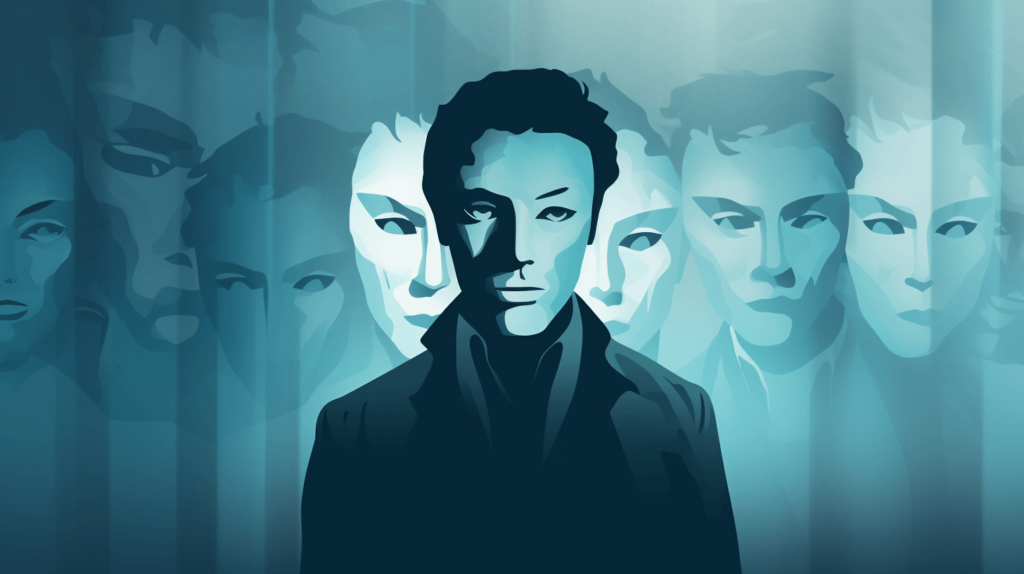Science
How Did Life Rebound on Earth? The Answer Lies Within the Rocks
23 February 2026

According to the World Health Organization, as many as 280 million people suffer from depression, representing 3.8% of the global population. The disease affects 5% of adults and 5.7% of children. With the data suggesting that something wrong is happening to our mental health, approaching this problem from as many angles as possible is certainly justified.
One explanation for the increase in the incidence of depression might be better accessibility to specialist diagnostics, as well as the breaking of taboos which previously prevented open discussions on mental health.
Depression, or depressive disorder, is a condition which belongs to the group of affective (mood) disorders. It represents one of the most commonly recognized pathological conditions within the sphere of mental health. Depression is characterized by acute sadness, the feeling of guilt and despondency, pessimism and, in some patients, suicidal thoughts – which means that the disease can lead to death in extreme cases. The highly subjective mood disorder is frequently met with misunderstanding in the closest circles of those affected. At times, people with depression are urged to “get their act together.” However, patients’ accounts and experiences tell us that this condition is extremely overpowering and can disorganize anyone’s life to the same extent as any other serious somatic illness.
The topic of mental disorders is obscured by myths and oversimplifications, which for many years caused patients to conceal their condition despite worsening symptoms. Advancing medicine and a more knowledgeable public have encouraged increasingly higher numbers of people who suspect that they might be suffering from a mood disorder to see a specialist. Mood disorders occur in both sexes; however, they are diagnosed less frequently in men.
This is mostly due to cultural pressures deterring men from displaying emotions and signs of weakness. The development of pharmacotherapy and psychotherapy enables the disease to be managed effectively, provided that patients start and then continue their therapy. Of immense importance is also the support of society and, in particular, the family circle that shows acceptance and understanding. Educating the public helps to break down the barrier of shame – the breaking of taboos by celebrities and other people in the public eye who openly admit to their illnesses also has a considerable impact on how mental disorders are perceived.
Patients who, for a variety of reasons, have poor insight into their emotions and are unable to name their feelings may fail to notice the advancement of the disease. This does not mean, however, that the disease does not manifest itself. A disturbed personality structure and a weakened ego cause the patient’s psyche to activate defense mechanisms such as denial. Meanwhile, the internal conflict continues to play out in the subconscious. This, in turn, leads to distress as there is no sign of its resolution.
The inability to accept one’s sensations and the adoption of the mechanism of denial mean that the patient does not experience the typical symptoms necessary to make a proper diagnosis. These circumstances are conducive to generating the state of so-called masked depression. The patient often seeks help from a wide range of specialists due to somatic symptoms manifesting themselves in relation to their nervous, circulatory or digestive systems. The most frequent symptoms are: tingling of the facial area and limbs, palpitations, abdominal pain, and headaches. Partly linked to masked depression is so-called fibromyalgia, which is chronic pain of a rheumatic nature that occurs without a specific physical cause.
The inability to make a clear diagnosis, frequent visits to countless specialists in search of relief from pain and frequent accusations of hypochondria generate frustration that exacerbates the patient’s symptoms, creating a vicious circle.
Today, symptoms of depression can be effectively treated by means of pharmacotherapy. The most commonly used drugs are substances from the SSRI group (selective serotonin reuptake inhibitors, such as sertraline or escitalopram). They act on the central nervous system to increase the amount of the neurotransmitter, i.e. serotonin, in the synaptic space. A deficiency of this substance, known as the ‘feel-good’ hormone, is the main physiological trigger of the disorder. Medications such as SNRIs (serotonin and norepinephrine reuptake inhibitors, e.g. duloxetine), less commonly TLPDs (tricyclic antidepressants) and MAO inhibitors (monoamine oxidase inhibitors) are also used.
The selection of appropriate medication and the monitoring of the therapy’s effectiveness by a psychiatrist can effectively alleviate and sometimes completely eliminate, the clinical symptoms of depression.
Medication is increasingly seen as an addition to therapy, with psychotherapy recommended as an essential treatment. Depending on the theoretical approach, both the etiology of the disease and the treatment vary in terms of the methods used.
A therapy that is most extensively documented based on clinical research is cognitive behavioral therapy (CBT). Its creator, Aaron Beck, combined the existing achievements of the behavioral method, which involves inducing a lasting behavioral change in patients, with the findings of cognitive psychology, which studies processes such as thinking, perception, attention and memory. The therapy aims to bring about a permanent change in the ways of learning and reconstructing cognitive patterns that are considered maladaptive.
With the support of the therapist, patients gradually uncover their misconceptions and the resulting low self-esteem, shaped by errors in perception and interpretation of the surrounding world and interpersonal behaviors. The objective is to learn adaptive ways of thinking to help ease the suffering experienced by patients.
Another effective treatment method, whose effectiveness has been compared in recent studies to the CBT approach, is psychodynamic psychotherapy. According to those who expanded on Freud’s research (Melanie Klein, Glen O. Gabbard, and Otto F. Kernberg), depression results from self-aggression, and its cause lies in our early childhood and the relationship we had with our most important person – our mother. According to them, the mother is both a gratifying object (providing nourishment and care) and a frustrating one, as she does not immediately meet the child’s needs. If the quality of the relationship is poor, i.e. frustration outweighs gratification (the mother is cold, absent, or insensitive to the child’s needs), the child may experience emotions of anger and despair, which can then transform into self-directed aggression. These patterns perpetuate themselves and continue into adulthood, causing anxiety and guilt when triggered. Therapy consists of analyzing the phenomenon of transference (the conveyance of children’s anger and inner conflicts onto the therapist) in order to make the patients aware of these feelings and teach them to experience such emotions in an appropriate way.
Although the source of depression is still not fully understood, and various theoretical approaches point to its diverse genesis, it is comforting to know that this disorder can be effectively treated. Apart from the therapeutic intervention, however, there is one type of support that is simply irreplaceable – the support of the people closest to the patient who demonstrate understanding, acceptance and awareness that the patient is indeed suffering.
Considerable credit must be given to those who fight for their loved ones, accompanying them on this challenging journey. Their support might have prevented a great number of tragedies. It is always someone we love who will be our greatest external motivation, even if we lack such motivation in ourselves. Patients often compare their recovery to stepping out into the light. Having left the darkness behind, they can focus on achieving a good and happy life. As we all deserve to be happy, the future is worth fighting for, and with the support of others, success is within our grasp.
If you have been experiencing constant fatigue, feelings of guilt and sadness over the past six months, you can seek help by contacting:
116 123 – phone number in Poland for adults experiencing emotional crisis
You can also see a psychiatrist – a referral from a GP is not required in Poland.
Sources:
Jacek Bomba, ‘Spojrzenie na depresję z perspektywy psychoterapii’. Psychoterapia 1 (148) (2009)
Justyna Pełka-Wysiecka, Jerzy Samochowiec, ‘Depresja czy faktycznie zróżnicowana farmakoterapia?’ Psychiatria 11.3
Lech Kalita. ‘Długoterminowa psychoterapia psychoanalityczna jako skuteczna metoda leczenia głębokiej depresji—krótki przegląd współczesnej literatury i przykład kliniczny’, 2018


Science
22 February 2026

Humanism
22 February 2026

Zmień tryb na ciemny